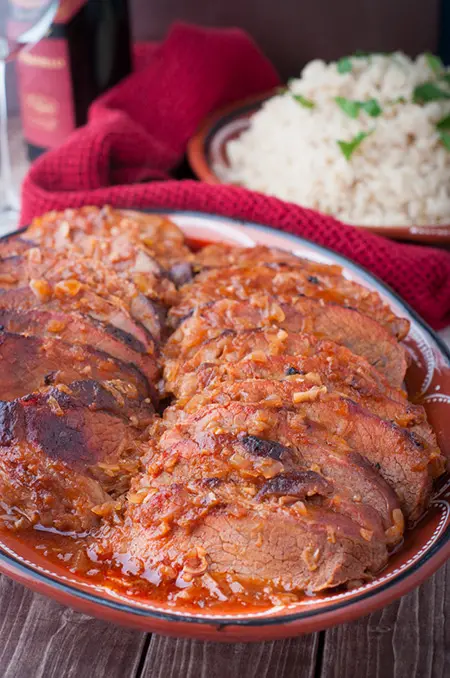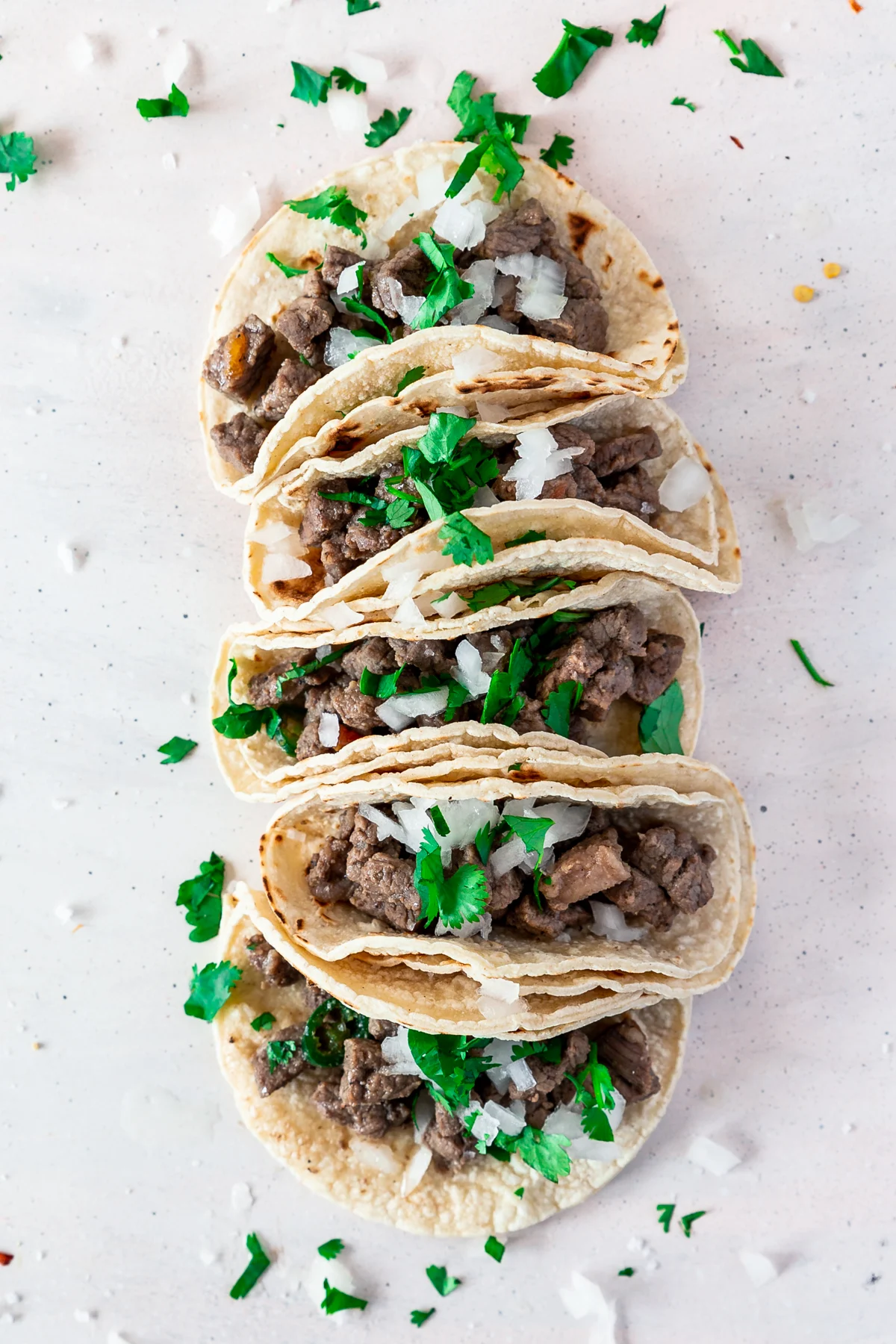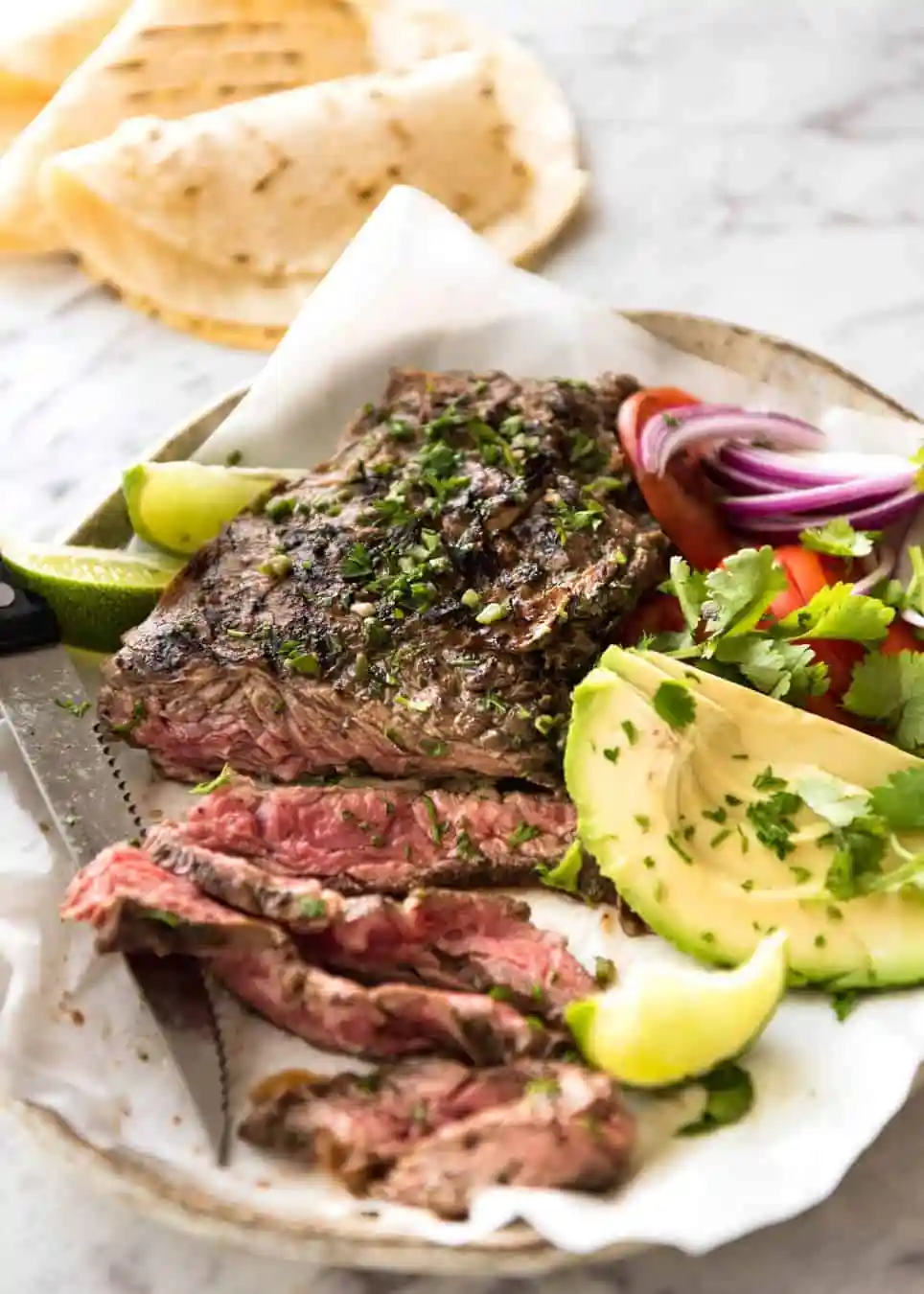
This is a guru week - a week in which I return to one of my early cooking influencers/teachers for a recipe to try out for dinner. This week I am returning to Robert Carrier and his second major work The Robert Carrier Cookbook. Larger than Great Dishes of the World it is stacked full of goodies, many of which I have made in the past. My version is falling apart and covered in grease spots, but there aren't many pictures, and most of them are not of the dishes contained therein.
I decided I would resist the recipes I make on and off even today and also those that I remember very clearly, so I started flicking through his beef section and came across Carne assada (Portuguese pot roast). Now Robert Carrier is not averse to repeating recipes across his repertoire of books, but as far as I can see, this is the only time he publishes this particular recipe. Anyway - it's just a marinaded pot roast - but the ingredients of the marinade were just a little different, used red wine - we have some that needs using - comes from Portugal - a cuisine I'm not very familiar with and moreover we have not had a pot roast for some time. So I decided to give it a go. Simple is sometimes the top of the tree when it comes to deliciousness.
Just to give you a flavour, besides the red wine, the marinade ingredients include lemon juice, olive oil, garlic, salt, paprika, pepper, bay leaves and cloves - so a little bit different. And the last part of the pot roasting is really roasting because you take the lid off.
I knew I wouldn't find the recipe online - Robert Carrier's recipes rarely are, even though his books are classics. The world has forgotten him unlike Elizabeth David and Jane Grigson. Maybe they had devoted editors (Jill Norman for Elizabeth David) or children (Sophie Grigson) to make sure they were not forgotten. So anyway I started looking for similar recipes and immediately found that one letter in a word can make it mean something completely different even if it actually means the same thing. Let me explain.

Assada - means roast in Portuguese - so carne assada means roast meat. As does carne asada - which I assume is Spanish because this is the term that is used in Mexico. However, the Portuguese version is a pot roast - wine is definitely involved - and potatoes, although sometimes as just a garnish rather than an actual ingredient. Sometimes it even becomes a stew - more liquid, smaller pieces of meat.
Asada, on the other hand, is actually grilled beef which is sliced and put in tacos. Well that's its most common usage. Often, even perhaps mostly, it is simple grilled steak, and not very wonderful steak at that. J. Kenji López-Alt of Serious Eats has one of his mini treatises on the subject of the whole thing - what kind of meat to use, the marinade, etc. etc. and Recipe Tin Eats also has a similarly delicious looking version if you want to give it a try. Skirt is the cut to go for by the way.

Last thing on carne assada - the pot roast version. It's actually even more local than Portugal as it is a dish from the Azores Islands a thousand miles or so offshore in the Atlantic. A group of tiny islands each with their own specific way of cooking it. The very tempting version shown here is from David Leite on his website Culinaria. He is a James Beard Award winner, so I guess it comes with good references. I note that his version features chorizo whereas Robert Carrier simply has paprika. But then chorizo would not have been readily available, indeed probably not available at all when he was writing. I confess I'm a little bit tempted to go with the chorizo. Ottolenghi surely would. Apparently the main difference between Portuguese and Azorean food is that the Azorean food is somewhat spicier - in terms of heat.
I guess there's not much more to say on the subject. It's a simple dish. Comfort food that reminds the Azoreans of home. I will try to report on my attempt when I get to making it later in the week.
It did, however, give me a chance to reread Carrier's introduction to his book, so I will leave you with a couple of quotes.

"Odysseus made his voyages first and then Homer wrote about them. To discover and to reveal: that is the basis of all art. Until we have learned to explore, our tastes are so limited, our experience is so narrow, that we can make no valid comparisons, can found no true judgements.
So it is with food. We must learn to eat first."
"Though we have so many meals - tens of thousands during our lifetimes - these meals are numbered. Each slapdash one, each one that goes unappreciated, is lost for ever."
"Once you have adventured your palate long enough to have acquired real taste, real discrimination, the time has come when you yourself can cook. And cooking is a truly creative art, though an ephemeral one. It is also the most selfless of the arts because it is the least enduring. A bite or two, a quick swallow, and a beautiful work of thought and love and experience is no more."
All of which are thoughts worth constructing posts around. And I probably have already, but I might try again some day.
And he, like I, will end with a quote from John Ruskin:

"What does cookery mean? It means the knowledge of Medea and of Circe and of Calypso and Sheba. It means knowledge of all herbs, and fruits, and balms, and spices, and of all that is healing and sweet in grapes and savoury in meat. It means carefulness, and inventiveness, watchfulness, willingness and readiness of appliances. It means the economy of your great-grandmother and the science of modern chemistry and French art, and Arabian hospitality. It means in fine, that you are to see imperatively that everyone has something nice to eat."
This is a self portrait.





Comments